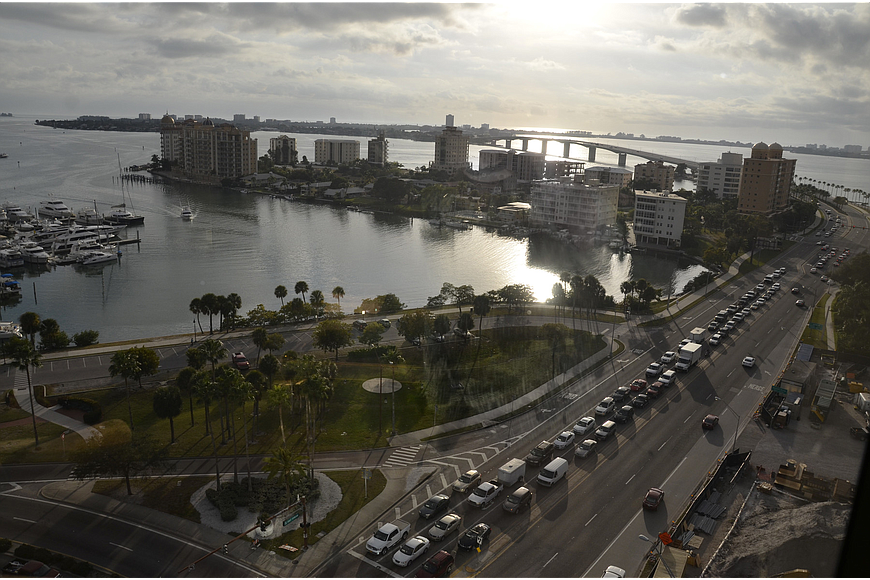- May 1, 2025
-
-
Loading

Loading

After holding three hearings in two months on the same topic, city staff Monday urged the City Commission to submit their recommended transportation policies to the state for review.
Staff acknowledged there had been criticism of their recommended changes to the city’s comprehensive plan, a document that outlines the city’s big-picture planning policies. But they stressed any lingering issues could be addressed before the changes were formally adopted next year, and that they had already worked to alleviate many of the concerns that had been raised.
“We went change by change; we made modifications,” said Chief Planner Ryan Chapdelain. “I don’t see the benefit of just submitting a certain part of it after the input.”
And then, the City Commission rejected those pleas, voting unanimously only to submit the portions of the comprehensive plan that are required to comply with state law before a Dec. 1 deadline.
The 5-0 vote obscures a divided board, which was split 3-2 on whether to listen to staff’s recommendations.
“I think once we start submitting the whole thing, it moves momentum toward a system that’s not really answering our problems.” — Susan Chapman
Much of the disagreement stemmed from a proposal to revise how the city determines a developer’s impact on the road network — and the money the developer must pay to address those impacts.
The changes would move the city away from a concurrency-based system of evaluating the impact of new development, which uses traffic studies to determine if a project is degrading the established level of service on the road network. Instead, the city would rely on a mobility fee, which can be spent on a broader range of transportation improvements. The plan charges the developer based on the number of trips a project is expected to generate.
Residents, including the activist group STOP, expressed concern about the metrics used in the new mobility system. They encouraged the commission to take those metrics out of the comprehensive plan — which requires a lengthy process that includes state review to amend — and place them in the zoning code, which allows for easier changes.
The commission went one step further, declining to submit any portion of the transportation chapter that was not required for inclusion by state law. That decision was a sign of the board’s desire for more substantive transportation policy changes — and an interest in pursuing all options for forcing developers to pay for their impacts on the city.
“I don’t see the benefit of just submitting a certain part of it after the input.” — Ryan Chapdelain
Although STOP has advocated against the move away from concurrency fees, staff argued the concurrency model could be detrimental for the city. The city has not generated any revenue from concurrency fees since the state revised its regulations in 2011.
Even if a project did trigger concurrency fees, the developer only has to pay for a proportionate share of the roadway congestion. If a road is already failing, collecting concurrency fees could force the city to contribute millions to a road-widening project, staff said.
The mobility fee model would require concurrency traffic studies for projects that didn’t meet certain thresholds.
Staff said the thresholds were established based on a project’s likelihood to trigger concurrency, but residents and commissioners were not ready to abandon traffic studies.
Perhaps more significantly, some residents and commissioners wanted to see a different mindset from staff when it came to transportation policy.
Rather than just steering money toward bike paths and bus shelters, City Commissioner Susan Chapman suggested the city needed more data on the types of transportation people are likely to actually use so it could spend more wisely.
Chapman said the proposal was unlikely to address one of the city’s most pressing issues.
“I think once we start submitting the whole thing, it moves momentum toward a system that’s not really answering our problems,” she said.
Residents also encouraged the city to take a more imaginative approach to solving traffic programs, suggesting the creation of a Traffic Advisory Board could spark an ongoing dialog regarding a broader spectrum of transit options.
When the city receives the state’s input early next year, the board directed staff to engage with residents to restore additional policies into the transportation chapter of the comprehensive plan.